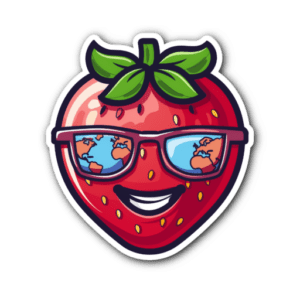Learning essential phrases in German is important for travelers. Begin with basic politeness: 'Guten Tag' for hello and 'Danke' for thank you. When ordering food, try 'Ich hätte gerne' (I would like) and 'Die Rechnung, bitte' (The bill, please). For directions, use 'Wo ist…?' (Where is…?) and 'Links, rechts, geradeaus' (Left, right, straight ahead). Making reservations? Phrases like 'Ich hätte gerne ein Zimmer' (I would like a room) are essential. In shops, 'Wie viel kostet das?' (How much does this cost?) is handy. These phrases fuel cultural connections and smooth travels in Germany.
Greetings and Basic Politeness
Want to know how to greet others politely in German? Let's explore essential phrases for basic politeness in German travel conversations.
When visiting Germany, understanding cultural customs is key to making a good impression. Germans value punctuality, so being on time for meetings or appointments is essential. When greeting someone, a firm handshake is the norm, along with maintaining direct eye contact. When exchanging greetings, saying 'Guten Tag' (Good day) or 'Hallo' (Hello) is common in more formal settings. In informal situations, 'Hallo' or 'Hi' works just fine.
Language exchange can be a fun way to learn more about German culture. Locals appreciate when visitors make an effort to speak their language. Learning basic phrases like 'Danke' (Thank you) or 'Bitte' (Please) can go a long way in showing respect. Don't be afraid to ask for help or clarification; most Germans are happy to assist.
Ordering Food and Drinks
Upon entering a German restaurant or café, it is essential to familiarize yourself with key phrases for ordering food and drinks to navigate the culinary delights of the country smoothly. When dining in Germany, exploring the cultural cuisine and savoring local specialties is a must. Here are some essential phrases to help you order confidently:
| English | German | Pronunciation |
|---|---|---|
| Can I see the menu? | Kann ich die Speisekarte sehen? | Kuhn ikh dee shpy-zuh-kahr-tuh zay-en? |
| I would like to order, please. | Ich möchte bitte bestellen. | Ikh murkhte bitt-uh be-stel-en. |
| What do you recommend? | Was empfehlen Sie? | Vahs em-pfeh-len zee? |
| The bill, please. | Die Rechnung, bitte. | Dee ren-oong, bitt-uh. |
As you immerse yourself in the German dining experience, don't be afraid to try new dishes and ask for recommendations. Embracing the local cuisine is a delightful way to experience the culture and flavors of Germany. Prost (Cheers) to a memorable culinary journey!
Asking for Directions
Exploring through unfamiliar streets can be challenging, but mastering a few key phrases in German can make asking for directions a smooth and rewarding experience. When finding your way a new city, understanding how to inquire about public transportation is vital. Phrases like 'Entschuldigung, wie komme ich zur nächsten U-Bahn-Station?' (Excuse me, how do I get to the nearest subway station?) can help you easily locate your way around.
Additionally, knowing how to ask about landmarks and attractions is essential for a fulfilling travel experience. You might say, 'Können Sie mir den Weg zum Brandenburger Tor zeigen?' (Can you show me the way to the Brandenburg Gate?) when seeking directions to iconic sites. Locals appreciate when visitors make an effort to communicate in their language, so don't hesitate to practice these phrases for a more immersive journey. Whether you're exploring by foot or utilizing public transportation, these phrases will empower you to confidently find your way the streets of Germany.
Making Reservations
When making travel arrangements in Germany, it's important to learn how to effectively make reservations in German to guarantee a smooth and enjoyable trip. For hotel accommodations, you'll commonly hear phrases like 'Ich würde gerne ein Zimmer reservieren' (I would like to reserve a room) or 'Haben Sie noch Zimmer frei?' (Do you have any rooms available?).
When booking ticket reservations, you can use phrases such as 'Ich möchte ein Ticket nach (destination) buchen' (I would like to book a ticket to (destination)) or 'Wann fährt der nächste Zug/Bus nach (destination)?' (When does the next train/bus leave for (destination)?).
It's also helpful to know numbers in German to specify dates, times, and the number of people. By mastering these reservation phrases, you'll make sure that your stay in Germany is stress-free and well-organized.
Shopping and Bargaining
As we venture into the world of shopping and bargaining in Germany, let's explore some key phrases and techniques that can enhance your experience.
From negotiating prices to expressing your preferences, having a grasp of the local language can open doors to exciting interactions with vendors.
Let's uncover the art of haggling and the essential shopping vocabulary that will empower you during your German shopping escapades.
Bargaining Techniques in German
Exploring the intricacies of bargaining in German can elevate your shopping experience to a whole new level of cultural immersion. Understanding cultural etiquette is essential when engaging in negotiations. Germans appreciate directness and honesty, so being polite and respectful is key.
Start by greeting the shopkeeper with a friendly 'Guten Tag' and maintain eye contact throughout the conversation. Develop your negotiation skills by confidently proposing a lower price while providing valid reasons for your offer. Remember to stay patient and maintain a positive attitude, as this can work in your favor.
Embrace the back-and-forth exchange as a way to connect with the local culture and potentially secure a better deal. Happy bargaining!
Shopping Phrases in German
Getting around shopping experiences in Germany involves mastering essential German phrases for both purchasing items and negotiating deals. When shopping, it's helpful to know how to ask about prices, sizes, and colors. Phrases like 'Wie viel kostet das?' (How much does this cost?) and 'Haben Sie das in meiner Größe?' (Do you have this in my size?) can come in handy.
In local markets, you might want to try bargaining, so knowing phrases like 'Können Sie den Preis senken?' (Can you lower the price?) can be beneficial. Additionally, being aware of currency exchange rates will help you understand the value of items in euros.
Emergency Situations
In an emergency abroad, knowing how to ask for help can make a significant difference in the outcome of the situation. If you need medical assistance but face a language barrier, don't panic. Seek out someone who speaks English or use a translation app to communicate your needs clearly. It's important to have an emergency contact saved in your phone, whether it's a local friend, your hotel, or the consulate of your country. This contact can help bridge the gap between you and the local authorities or medical personnel.
In case of an emergency, dial the local emergency number immediately. In Germany, the emergency number is 112 for ambulance and fire services, and 110 for the police. Stay calm and provide your location and details of the situation as clearly as possible. Remember, staying composed and seeking help promptly can be lifesaving in critical situations. Familiarize yourself with these essential phrases to make sure you're prepared for any unforeseen circumstances while traveling.
Transportation and Travel
Getting around Germany's transportation system can be both efficient and enjoyable with a bit of preparation and understanding. When traveling in Germany, it's important to familiarize yourself with the public transportation options available. The country boasts a well-connected network of trains, trams, buses, and subways that make getting from one city to another a breeze.
Before starting on your journey, make sure to have your travel essentials handy, such as your ticket or pass. Germany offers various ticketing options, including single tickets, day passes, and regional passes, depending on your travel needs. Understanding the public transportation schedule is vital to avoid any delays, especially if you have a tight itinerary.
One of the perks of using public transportation in Germany is the opportunity to admire the picturesque landscapes while on the move. Whether you're traveling through bustling cities or serene countryside, the efficient transportation system allows you to sit back, relax, and enjoy the scenic views. So, embrace the convenience of public transportation and make the most of your travel experience in Germany.
Numbers and Currency
Understanding numbers and currency in Germany can greatly enhance your travel experience and guarantee smooth transactions during your stay. When dealing with numbers, having a good grasp of the German counting system is crucial. From eins (one) to zehn (ten), familiarizing yourself with these basic numbers will be incredibly helpful. Additionally, learning how to say the numbers for time and dates like Uhr (hour) and Tag (day) will assist you in scheduling activities and appointments efficiently.
Regarding currency, the Euro is used throughout Germany. Knowing how to say Euro and Cent in German, as well as understanding the various denominations of Euro coins and notes, will make shopping and dining experiences more convenient. It's also beneficial to grasp phrases like 'Wie viel kostet das?' (How much does this cost?) to inquire about prices.
Being able to handle numbers and currency confidently will make sure that you navigate transactions with ease, allowing you to focus more on enjoying your travels.
Expressing Gratitude
With a simple 'Danke' (Thank you), you can express gratitude effectively while traveling in Germany, fostering positive interactions with locals and enhancing your cultural experience. When visiting Germany, understanding cultural customs and language nuances related to expressing gratitude is essential. Germans appreciate sincerity, so remember to make eye contact and offer your thanks with a smile.
In German culture, saying 'Danke' is the most common way to show appreciation. However, knowing when to use formal or informal language is vital. When in doubt, opt for the formal 'Danke schön' to show respect, especially with older individuals or in professional settings.
Furthermore, acknowledging kindness by saying 'Vielen Dank' (Many thanks) or 'Herzlichen Dank' (Heartfelt thanks) adds a warm touch to your gratitude. These slight language variations can make a significant difference in how your appreciation is perceived.
Common Phrases for Socializing
One essential aspect of socializing in Germany is mastering common phrases that can help you connect with locals and navigate social situations smoothly. Understanding cultural etiquette is essential when interacting with Germans. Always greet people with a handshake, maintain eye contact, and address them using formal titles like 'Herr' for Mr. and 'Frau' for Mrs.
Conversation starters play a key role in breaking the ice. Asking about someone's day with 'Wie geht's?' (How are you?) or commenting on the weather with 'Schönes Wetter heute, nicht wahr?' (Nice weather today, isn't it?) can lead to engaging discussions. Germans appreciate when visitors show an interest in their culture and language, so don't hesitate to ask about local traditions or recommend trying authentic German cuisine.
Conclusion
To sum up, mastering these essential phrases in German will greatly enhance your travel experience.
Whether you're ordering a delicious meal, exploring a new city, or making new friends, having these phrases at your fingertips will make communication smoother and more enjoyable.
So, practice these phrases with passion and patience, and watch how your German skills blossom beautifully on your next adventure!

